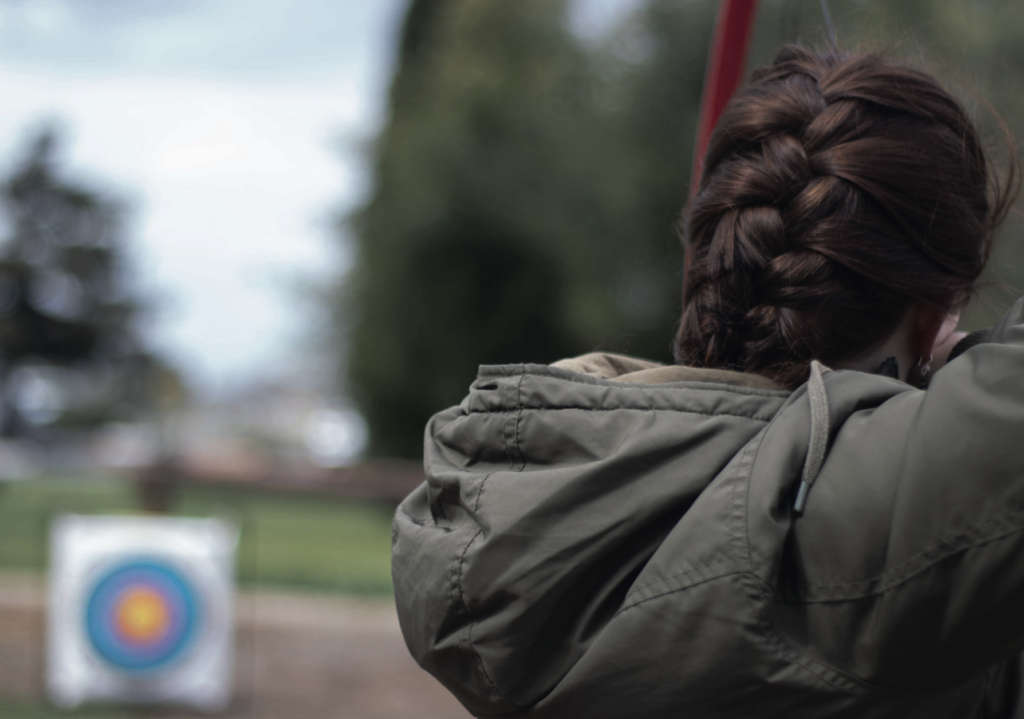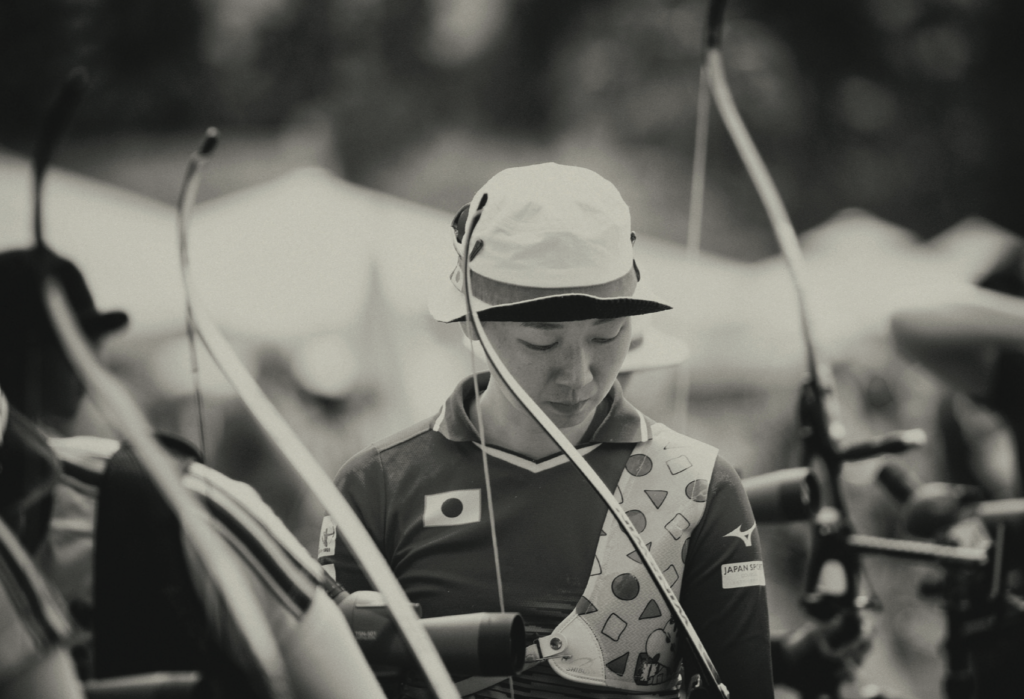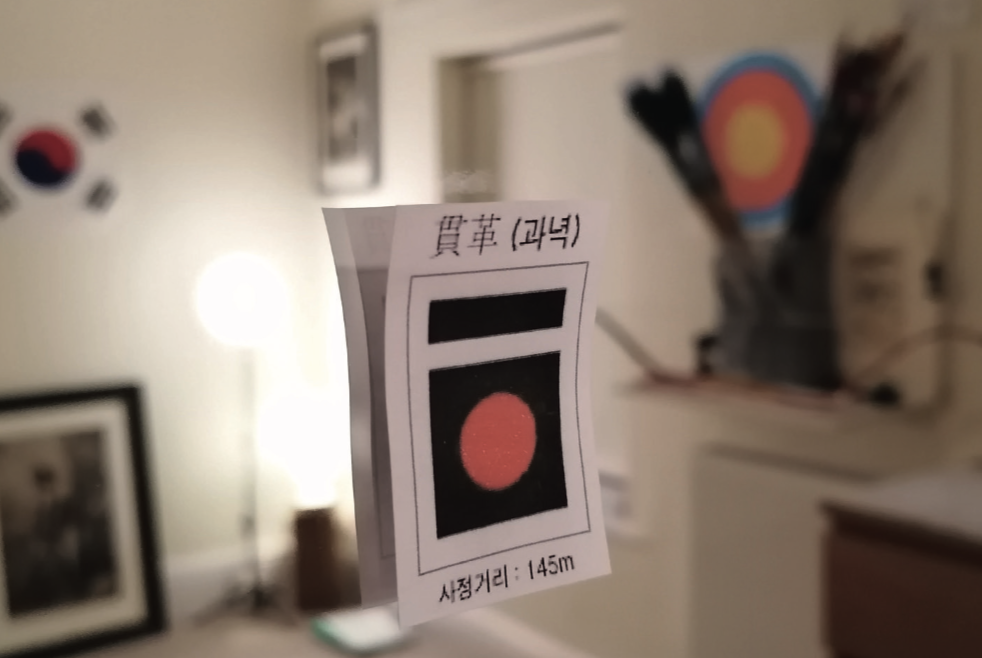Returning to archery after a long break? You and everyone else. By Kristina Dolgilevica
Returning to sport after a prolonged break is never easy; however, the good news is that many have managed to return to sport in the past and are doing so as you read.
How and why do some find motivation, commitment and resources to return to training and others don’t? The answer is simple – the desire to return outweighs the desire to quit. I would like to share some evidence-based practical advice and strategies I use with my archery students.
First, you must look to your values because this is where your genuine motivation comes from. Your values are whatever you believe is important to you.
Assigning value to everything is in human nature; it is driven by our innate desire to survive and to reduce stress or discomfort: this ultimately guides all our decisions and behaviour. In any situation where we need to make a choice, we make an unconscious decision to fight, to get back up, to resolve, to stay in a comfort zone or to quit.
If something matters a lot you will put the extra effort in, despite the discomfort. Exploring or rediscovering what is important to you is a great place to start. Reflect on why you took up archery in the first place and why archery practice matters to you.
Is it about making your life better in some way? To make you feel healthier and better in yourself? Rate the importance of these reasons or values. Our values are important, but if we don’t act on them, they can’t really affect our lives and we end up living our life according to values imposed on us by others.
Exploring Values and Motivation: Mindfulness and Visualisation
Start with practising some basic mindfulness and visualisation. This is an excellent tool for grounding and will help you learn to refocus your attention in a variety of situations. Remember to practise mindfulness without self- criticism, just noticing the present moment.
Try this: close your eyes and think of your happiest day in archery. Take your time and recollect everything you can to the smallest detail.
Tip: think about the five senses – focus on what you can see, smell, taste, hear or touch. Perhaps you recall the day you shot your personal best, or your most successful competition day. Or maybe it is just an exceptionally fun practice day with your best friends.
Whatever it is, stay with it for a few moments and try to appreciate everything about it: the feeling of the warm sun on your back, the light evening breeze rustling through your hair, the smell of the freshly cut grass, the pleasant feeling of the muscle ache and a sense of accomplishment after you finally ‘nailed’ that release and so on.
I always find that I start to smile when I remember my favourite day and I want to relive it again. If, like me, you began to smile a little and feel a pleasant nostalgia for that experience, you value that memory highly and it can become one of your first motivational forces to return to the sport.
There can be many more days like that – you just have to make the first small step: the change always starts in your mind. How we think and what we believe is under our control. It is much like training your muscles – we can learn to change and to control them.
Exploring Values and Motivation: Pros and Cons
Taking a close look at the pros and cons, advantages and disadvantages of returning to archery will allow you to understand your own motivation and help you make a decision as to whether you really want to get back into it or not.
Tip: Create a list with two columns: pros and cons. Think about the benefits of doing archery, for example, fitness, social life, self-efficacy and so on.
If you are feeling stuck, ask yourself questions like, “How do I feel after practice, or when I don’t practise?”, “How does my archery practice affect my routine, social life and relationships?” and “Why would I recommend someone else to get into archery?”. There are pros and cons to everything, so be honest.
As a general rule, if the ‘pros’ list outweighs the ‘cons’, then the value you attach to archery is high and you have significant motivation to continue. If the ‘cons’ list dominates, then you might be struggling with your motivation.
Reconnect with your coach/mentor or find a new coach if your existing support network is not meeting your needs. Coaches have been working hard during lockdown to find new strategies to help you through your comeback.
They will have the necessary skills to help you challenge the obstacles and help you increase or regain your motivation. In my experience, sometimes just one consultation can change your whole mindset.
SMART Goals for Archery
Now that you have decided to return to archery, it is time to revisit your goals. Setting and working on goals during lockdown has been a great challenge for most archers, but many of us experience difficulties in setting goals under normal circumstances too.
Evidence shows that challenges in setting and actioning goals is not always because of a lack of effort but because of how we structure our goals. Using the SMART goal model is helpful in setting goals and will help you evaluate and re-evaluate their structure and validity.
Process goals
We’ve talked a lot about process goals before here in Bow, but it’s worth remembering that time-and-time-again, bad goal setting is what impedes progress in archery. The most common goal is essentially that of endless growth: “I shot X last week, today I should be able to shoot X+1”.
This, of course, puts a finite limit on achievement – eventually you will run out of points to score, which would be a lovely problem to have, of course – but crucially ignores the key steps that you must take to get there, and sets up anger and frustration when the goal is not reached. A process goal involves something you will do regardless of what you achieve, such as:
“I will focus my attention on anchoring every shot in exactly the same way”. Process goals usually involve an element of self-trust; something frequently in short supply in recent times.
Let’s take a quick look at two main goal types: the long-term goal and the process goal. The first is the ultimate goal you want to achieve in the near or far future.
Here are some examples of clear, specific, process-oriented goals that presume a course of action: “I want to be comfortable with my recurve bow setup with full stabilisation system by the end of 2021”, “I want to win the club outdoor championship in 2022”, “I want to be ranked among the top five recurve indoor nationals in 2021”, “I want to be a part of the Olympic squad for the 2024 Games”. And here are a couple of goal examples that aren’t SMART: “I want to be the best archer in the world”, “I want to win the Olympics” and so on.
What is SMART?
Specific – state exactly what you want to achieve. Can you break
a larger task into smaller steps? You must have distinct answers to the following questions: What, Who, When and Why?
Measurable – establish concrete criteria for measuring your progress for any goal or sub-goal you set. How will you know when your goal is achieved?
Action-oriented – describe your goals using action verbs. Outline exact steps you will take to achieve your goal. Start to develop the right attitude, abilities, skills and financial capacity to reach your goal.
Realistic – give yourself the opportunity to succeed by setting goals you will actually be able to accomplish. Consider obstacles that you may need to overcome. Revisit coping strategies.
Time-bound – how much time do you have to complete the task? Decide exactly when you start and finish your goal.
The second type, process goals, includes all of the tactical steps you take in between today and your ultimate goal. These goals target your technical, physical and mental development.
Process goals also serve as performance assessment markers – they will help your coach assess your progress, pinpoint your strengths and weaknesses and adjust the process.
Remember that all goals need to be revisited on a regular basis. Something all archers have had to do in the face of recent events is to change their goals, so you are not in it alone.
When coming back to archery after lockdown, or a prolonged break, your initial emphasis will naturally shift to your form; you will focus on daily steps to regain your physical stamina and confidence in your technical ability.
Think back to a time when you may have had an injury – a broken arm, for example. Most of us have had situations in our lives that have ‘made’ us stop, halt or discontinue activities we liked doing for long periods, but we have adapted and shifted our attention to the things that mattered more in that situation at the time. The human body and mind are incredibly resilient and can withstand many stresses.
Changing your Mindset
Changing your way of thinking is arguably the most fundamental and challenging part. Throughout our life we develop beliefs and attitudes about the world and all the things in it.
Our thoughts and beliefs guide how we see the world and how we act. We hardly even notice the unhelpful, goal-blocking thoughts running through our mind and we just tend to believe them.
Here are several quotes from archers I have spoken to recently: “Covid left me at a disadvantage”, “It isn’t fair that some archers can shoot, and I can’t”, “I have lost all of my archery form in five months”, “I have missed so many competitions, I’ll never catch up” and so on. All of the statements above are unhelpful, goal-blocking thoughts that turn us away from positive actions that take us towards our goals.
Thoughts are just words that aren’t necessarily true, and we so readily and automatically believe them. COVID-19 did indeed bring many disruptions to archers’ development; however, it is unproductive to dwell on things we cannot control.
Many had to re-prioritise things in their life, diverting attention to family, income, health and so on. Every new day is an opportunity – it is a new start and a new beginning.
Yesterday is in the past – it is something you have to accept and move on. Comparing yourself with others and their individual circumstances is equally as unhelpful. Focus on today, plan for tomorrow and be excited about the future because, in reality, the future is never predictable.
- Practise mindfulness
Focus your attention on one of the five senses during daily activities and chores. This will ground you and help you focus on the task at hand, making the experience more enjoyable. - Increase cardio/physical activity
Try jogging for as long as you can. Leave the headphones at home, focus on your thoughts or your surroundings. Apply mindfulness (see above). - Make a Pros and Cons list
This will increase motivation, challenge your thinking and help you be more objective about your expectations.
- Make a list of reasons why archery is important to you
Rate each on a scale of 0 to 10 in terms of importance, then rate in terms of how closely you live up to this reason/value. This helps us visualise our values and set objective goals.
- Replace goal-blocking thoughts with positive, goal-orientated ones
Replace “I’ll never qualify in the top 10” with “I will be in the top 10, but if I don’t make it this time around it’s not the end of the world.” This will ground you and boost your self-esteem.
- Use the SMART model to structure your goals
This will help you formulate realistic goals.
- Use positive affirmation meditations or mantras
This will ground you and boost your motivation.
- Surround yourself with archery objects
Invest positive meaning into them. This will boost your commitment, motivation and self-esteem on a daily basis.
About the author
Kristina Dolgilevica is a founder of Third Eye Archery and a Level II Archery Coach, Kim Hyung Tak Archery School, Korea. She focuses on archery mastery of recurve, barebow, traditional and compound archers and has a special interest in individual training plan development, motivation and goal setting.
To find out more please visit: www.thirdeyearchery.com
Contact: info@thirdeyearchery.com
Special thanks to psychologist and neuroscientist Karina Dolgilevica for her continued mentorship in clinical psychology and cognitive neuroscience.




